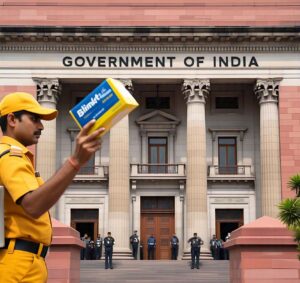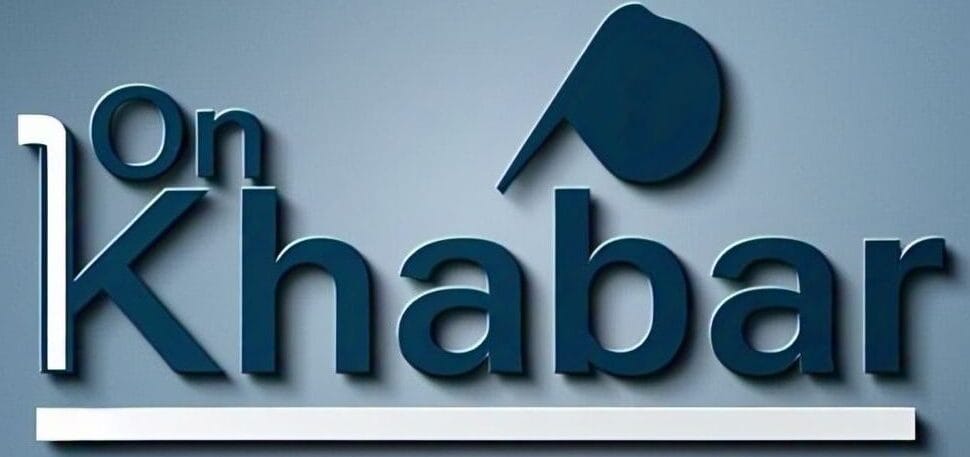
In a world where instant gratification is the norm, Airtel’s partnership with Blinkit to deliver SIM cards in 10 minutes seemed like a game-changer. However, the service hit a roadblock just days after its launch. The Department of Telecommunications (DoT) stepped in, raising concerns about compliance with Know Your Customer (KYC) norms. This blog dives deep into why the service was paused, the regulatory landscape, and what lies ahead for telecom innovation in India.

What Happened? Airtel-Blinkit’s Express SIM Delivery Paused
On April 15, 2025, Airtel announced its collaboration with Blinkit, a quick-commerce platform, promising SIM card delivery within 10 minutes in 16 cities. For a nominal fee of ₹49, users could order a SIM, complete a self-KYC process via Aadhaar or DigiLocker, and activate their number instantly. The service aimed to eliminate the hassle of visiting stores and waiting for verification.
However, within days, the Department of Telecommunications (DoT) intervened, questioning whether Airtel followed mandatory KYC protocols during delivery. The service was abruptly suspended, leaving customers confused and sparking debates about balancing convenience with security.
You paused SIM delivery to protect KYC. But who’s protecting the 37.5 crore users already exposed on breach forums, Airtel? @airtelindia @nixxin @medianama #news #airtel #telecomtech #BreakingNews pic.twitter.com/I1wLqG4IQF
— kshitij parashar (@kshitijpar88309) April 30, 2025
The KYC Controversy: Why Did the Government Intervene?
Understanding KYC Norms in Telecom
KYC (Know Your Customer) rules are critical for preventing identity theft, fraud, and misuse of telecom services. In India, telecom operators must verify a customer’s identity and address through physical documents or digital authentication (Aadhaar/DigiLocker). The process ensures accountability and curbs illegal activities like SIM boxing or phishing.
Self-KYC vs. Traditional KYC
Traditionally, customers visit stores to submit documents for verification. Self-KYC, introduced in 2021, allows digital onboarding using biometric authentication. Airtel’s service relied on this method: after delivery, users scanned their Aadhaar, took a selfie, and activated the SIM.
The DoT’s Concerns:
Post-Delivery Verification Risks: The DoT flagged that Aadhaar-based KYC was completed after the SIM was handed over, leaving a gap where unverified SIMs could be misused.
Lack of Physical Checks: Unlike in-store processes, delivery agents weren’t trained to validate identities, raising risks of impersonation.
Regulatory Non-Compliance: The DoT stressed that telecom operators must follow KYC guidelines before SIM activation, not after.
Regulatory Mandate: Why KYC Compliance Can’t Be Compromised
India has tightened telecom regulations after incidents of SIM fraud. For instance:
In 2023, over 5,000 fraudulent SIMs linked to cybercrimes were traced to lax KYC processes.
The DoT’s 2024 guidelines mandated biometric verification for all SIM issuances.
By halting Airtel’s service, the government reinforced that security trumps convenience. Telecom Minister Ashwini Vaishnaw earlier stated, “KYC norms are non-negotiable to protect national security and consumer interests.”
Impact on Airtel and Blinkit: A Setback for Innovation?
The suspension is a blow to both companies:
Airtel’s Customer Acquisition Strategy: The telco aimed to leverage Blinkit’s hyper-local delivery network to attract users switching to 5G or porting numbers.
Blinkit’s Expansion Plans: The collaboration marked Blinkit’s foray beyond groceries and electronics, positioning it as a multi-service quick-commerce platform.
User Reactions:
Social media erupted with memes and frustration. One X user joked, “By the time I blinked, Airtel’s SIM service vanished!” Others criticized the DoT for stifling innovation.
What’s Next? Airtel’s Path to Compliance
Airtel has temporarily paused the service to “align with regulatory requirements.” Industry experts suggest possible fixes:
Pre-Delivery KYC: Customers could complete digital verification before placing an order.
Trained Delivery Executives: Agents might verify IDs physically during delivery, similar to courier companies handling Aadhaar-based services.
Enhanced Tech Integration: Tighter integration with DigiLocker or UIDAI’s database for real-time checks.
Airtel is likely to relaunch the service soon, given its commitment to “simplifying customer lives.” However, delays could let competitors like Jio or Amazon (rumored to explore similar services) seize the opportunity.
The Bigger Picture: Balancing Innovation and Regulation
This incident highlights a recurring conflict in India’s digital ecosystem—innovation vs. compliance. While startups and corporations push for frictionless services, regulators prioritize security. The challenge lies in finding middle ground.
Lessons for Other Telecom Players:
Proactive Compliance: Engage regulators early when launching disruptive services.
Educate Customers: Use apps or videos to guide users through self-KYC, reducing errors.
Leverage Technology: AI-powered face recognition or blockchain-based KYC could streamline processes.
FAQs: Your Questions Answered
What is Airtel-Blinkit’s 10-minute SIM delivery?
A service offering SIM card delivery in 10 minutes via Blinkit, with digital KYC activation.Why was it halted?
The DoT flagged risks in post-delivery KYC verification, violating compliance norms.Are all quick SIM deliveries banned?
No, only Airtel’s service is paused. Other providers must ensure pre-activation KYC.When will the service resume?
Airtel hasn’t announced a date but is working with the DoT to revise processes.Is self-KYC allowed in India?
Yes, but verification must occur before SIM activation, as per 2024 guidelines.
Conclusion
Airtel and Blinkit’s 10-minute SIM delivery was a bold step toward redefining telecom convenience. While the pause is a temporary setback, it underscores the importance of regulatory compliance in India’s fast-evolving digital economy. For consumers, this means waiting a bit longer for ultra-fast SIMs, but with stronger safeguards against fraud. As Airtel retools its process, the incident serves as a reminder: In the race for innovation, security must never be left behind.
Stay tuned for updates on this story!









